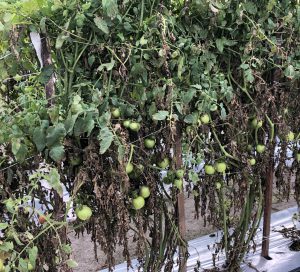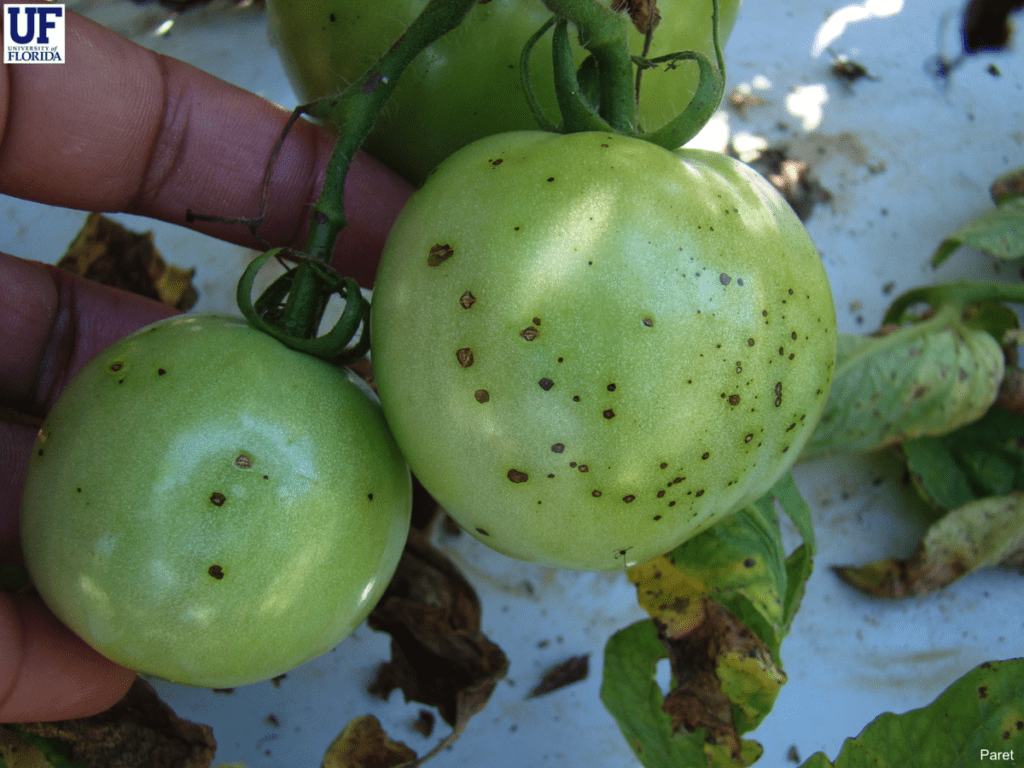May 12, 2023UF researchers develop target spot resistant tomatoes
University of Florida researchers may have found the key to developing tomatoes that can resist the catastrophic target spot of tomato disease.
Although it has been around for 50 years, target spot of tomato has become increasingly problematic during the last few years. The disease causes lesions in both leaves and fruits. It’s commonly found in the tropics and the subtropics worldwide.

Target spot of tomato is caused by a fungus that infects hundreds of types of plants, including other crops like rubber trees, cotton, soybean and cucumbers.
“No current tomato varieties resist the disease, and the only way to control it is through fungicides. However, target spot is increasingly resistant to several common fungicides, which drives us to develop resistant varieties,” Edgar Sierra, who just completed his doctoral dissertation on target spot resistance for the UF/IFAS College of Agricultural and Life Sciences, said in a news release.
Working with his faculty advisors at the UF/IFAS Gulf Coast Research and Education Center in Balm, Florida, Sierra used growth rooms to screen tomato seedlings for disease and discover sources of resistance. Then he tested mature plants in the field to understand how useful this resistance may be.
Results from field trials demonstrated that plants with target-spot resistance held up against the disease, even without fungicide sprays.
“We wanted to prove that the resistance identified in seedlings would translate to the mature plants in the field, and that was successful,” Sierra said in the release. “This is very exciting, especially given that it’s difficult to find plants that resist pathogens such as target spot. This is also a very challenging disease because it is very easy to confuse it with other common diseases like bacterial spot or early blight.”
 One of Sierra’s advisors is Sam Hutton, a UF/IFAS associate professor of horticultural sciences and a tomato breeder at GCREC.
One of Sierra’s advisors is Sam Hutton, a UF/IFAS associate professor of horticultural sciences and a tomato breeder at GCREC.
“Edgar’s findings are leading to development of the very first commercial varieties with target spot resistance, which should help provide more effective disease control, reduce disease-management costs and reduce pesticide applications,” Hutton said in the release. “More research into the underlying genetics behind this resistance will further improve our ability to develop resistant tomato varieties and may also lead to improved resistance to this disease in other crops.”
Fresh market tomatoes are popular worldwide, and farmers in the southeastern United States produce many of them. In Florida, fresh-market tomatoes bring in $400 million to $500 million annually.
“Together with an integrated disease-management plan, tomato hybrids with this novel resistance will help curb this increasingly relevant problem for tomato growers,” Sierra said in the release.

















